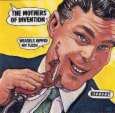 Walter Bishop, Jr. was a valuable utility pianist on many a modern jazz session during the bebop era, remaining an active performer until his death at the age of 70 in early 1998. The son of composer Walter Bishop, Sr., he grew up in Harlem's Sugar Hill area, and as a teen counted among his friends Sonny Rollins, Kenny Drew, and Art Taylor; acknowledging Art Tatum, Bud Powell, and Nat King Cole as important influences, Bishop first attracted notice on the Manhattan club circuit around 1947, going on to play and record in bands led by Art Blakey, Charlie Parker, Oscar Pettiford, Kai Winding, and Miles Davis in the years to follow. In 1960 he played in trombonist Curtis Fuller's group before forming his own trio the next year with bassist Jimmy Garrison and drummer G.T. Hogan. In 1964 Bishop toured with vibist Terry Gibbs, and in the late '60s he studied at Juilliard with composer/pianist Hall Overton. He moved to Los Angeles in 1969, where he continued to study and work as a freelancer with local groups, including Supersax and trumpeter Blue Mitchell's band. From 1972 to 1975 Bishop taught jazz theory, both privately and in local colleges. He returned to New York in 1975. The next year Bishop authored an insightful if neglected book on jazz theory, A Study in Fourths, in which he proffered a technique of chromatic improvisation based on the use of cycles of fourths and fifths. Bishop played in trumpeter Clark Terry's big and small bands in 1977. He continued to lead his own groups, and in the early '80s began teaching at the University of Hartford; in 1983 he played a solo concert at Carnegie Hall. In the mid-'90s Bishop appeared to great acclaim at the Charlie Parker Jazz Festival on New York City's Lower East Side. AMG.
Walter Bishop, Jr. was a valuable utility pianist on many a modern jazz session during the bebop era, remaining an active performer until his death at the age of 70 in early 1998. The son of composer Walter Bishop, Sr., he grew up in Harlem's Sugar Hill area, and as a teen counted among his friends Sonny Rollins, Kenny Drew, and Art Taylor; acknowledging Art Tatum, Bud Powell, and Nat King Cole as important influences, Bishop first attracted notice on the Manhattan club circuit around 1947, going on to play and record in bands led by Art Blakey, Charlie Parker, Oscar Pettiford, Kai Winding, and Miles Davis in the years to follow. In 1960 he played in trombonist Curtis Fuller's group before forming his own trio the next year with bassist Jimmy Garrison and drummer G.T. Hogan. In 1964 Bishop toured with vibist Terry Gibbs, and in the late '60s he studied at Juilliard with composer/pianist Hall Overton. He moved to Los Angeles in 1969, where he continued to study and work as a freelancer with local groups, including Supersax and trumpeter Blue Mitchell's band. From 1972 to 1975 Bishop taught jazz theory, both privately and in local colleges. He returned to New York in 1975. The next year Bishop authored an insightful if neglected book on jazz theory, A Study in Fourths, in which he proffered a technique of chromatic improvisation based on the use of cycles of fourths and fifths. Bishop played in trumpeter Clark Terry's big and small bands in 1977. He continued to lead his own groups, and in the early '80s began teaching at the University of Hartford; in 1983 he played a solo concert at Carnegie Hall. In the mid-'90s Bishop appeared to great acclaim at the Charlie Parker Jazz Festival on New York City's Lower East Side. AMG.listen here

Sem comentários:
Enviar um comentário